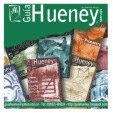Those who justify deforestation to expand the agricultural frontier claim that this is done to produce more food.
However, a recent report by FAO (UN Food and Agriculture) and the World Food Program, reveals that the number of people who do not have "anything to eat," is growing. These figures are the worst in the past 40 years worldwide.
Every October 16th the World Food Day is celebrated. This date was established in 1979 by FAO. This year, with the slogan "United Against Hunger", FAO seeks to raise awareness of the magnitude of the problem and draw attention to the importance of food security for all.
What's happening in Argentina? The UN reported that our country produces 1.61% of meat and 1.51% of the world's grain, amount of food, whicht would be enough to feed 400 million people. It is therefore unacceptable that more than 5 million Argentines suffer from food shortage.
The meager households incomes do not allow access to the basic food basket. This situation worsens with inflation and the ever-present speculation, which causes unwarranted price hikes.
Some argue that countries experiencing an increase in food prices should remember that food is necessarily a matter of national security, because if people lose the ability to get food, they are likely to be at the mercy of the speculative global market, and at the expense of those who produce commodities and condition production in favor of their own interests.
"Food sovereignty" and "food security" are phrases people speak about almost secretly, and little is told about what these phrases mean. To retrace the path, we should ask those who govern the State (national and provincial): what is being done from that place to favor the return of small and medium local economies, as well as to support them? What is being done for these economies suffocated by large corporations that use natural resources at their will, without protecting the environment? What is being done in the face of this situation, which results in the increasing exodus of farmers, and which involves the dismantling of regional economies?
It is possible to observe how the government itself in the province of San Luis has set the conditions to facilitate the arrival of investors in the agricultural sector. First, the legislation on Land Management of Native Forests in this jurisdiction was adapted, pretending to comply with the current national law, declaring the two zones with the biggest wooded area as "High Agricultural Productivity" just because it is possible to have water for irrigation in surface and / or underground (but which it would cause more deforestation).
After this was done senior provincial officials started a built strong bonds with potential investors in the agricultural sector. They were received by government authorities, and were certainly offered big tax benefits. Meanwhile, more and more small and medium farmers settled since ancient times in San Luis are being pushed out. Those farmers work the land themselves, they are the only ones who place value on knowledge of family farming, and highlight the appropriate use of ancestral genetic resource. Native seeds give value to the family farm, and constitute the backbone for the construction of sovereignty and food security.
TIPS: wash fruits and vegetables before eating them, let them rest in water with a few tablespoons of vinegar for a while. Then rinse.
The return to the organic garden is the healthiest and most economical practice for your home and family.
TIPS: wash fruits and vegetables before eating them, let them rest in water with a few tablespoons of vinegar for a while. Then rinse.
The return to the organic garden is the healthiest and most economical practice for your home and family.


